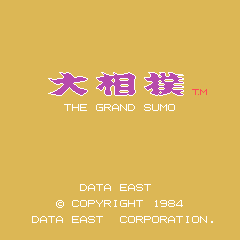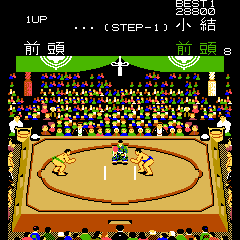As it transpires the release of MAME 0.145 was meant to come with a ‘promo’ combined MAME / MESS build, at least that was the plan at one stage. Why that didn’t happen I don’t know. Maybe concerns about the overall stability of the 0.145 release giving a bad impression, maybe a lack of time, maybe some more boxes needing to be ticked with various devs, maybe some last minute conflicts which prevented it going ahead. Either way, it didn’t happen.
Anyhow, there was some *official* code written for this purpose, similar to the last Ultimate patch I posted, but stripped down a bit further to the bare minimum of changes needed to build it. The code, written by Micko (MESS Co-ordinator) has been given to me, and I’ve uploaded it here. That code builds a variant called ‘universal.exe’ / ‘universal64.exe’. Given that it was the plan to include it at one point I’m cautiously optimistic that this may yet see the light of day in the official source trees (and maybe even as binaries) but we’ll see.
Personally I find ‘universal.exe’ a bit of a mouthful, so in building a new EXE myself I’ve shortened that to simply ‘uni.exe and ‘uni64.exe’ (UNIversal emulator).. actually UNE (UNiversal Emulator) would would also be a reasonable executable name. But, minor detail, this combined build has yet to really be given a proper name, so for now I’m still just gong to call it ‘Ultimate MAME’
Ultimate MAME 0.145+ (MESS SVN r14446) (GIT rev)
This as suggested is built from the MESS SVN r14446 code. It includes everything from the MAME/MESS of that revision, including the 7-zip support for ROMs.
As an additional option I’ve included extra binaries which are built as ‘MESS’. Those binaries will identify themselves as ‘MESS’ to external applications instead of Ultimate/Universal/MAME. This is done for compatibility with the QMC2 frontend. The MESS Version of the QMC2 frontend can be used with the ‘MESS’ binaries, because as far as it’s concerned it’s just a build of MESS with additional arcade titles. The actual MAME version of QMC2 is more stripped down and lacking in features needed to run various systems included in the Ultimate version, so you have to trick it into thinking it’s running MESS. If you’re not running / wanting to run QMC2 you have no need for these binaries.
EASY WAY, FOR THE LAZY
64-bit link (RAR) (includes resources, source, 64-bit uni.exe binary, and a 64-bit all-inclusive binary built as mess.exe instead for if you want to use QMC2)
32-bit link (RAR) (same as above, but 32-bit)
MANUAL WAY, FOR THE TECHNICAL
the following patches were used
Universal / Ultimate MAME build target
Patch to resolve build conflict with ‘bullet’ (name was used for both Wave Mate Bullet in MESS and Sega’s Bullet in MAME)
APE support patch for Samples (not vital but you can play with it if you want, see prior update for details)
SVN r14446 Common MAME/MESS Resource Files YOU WILL NEED THIS FOR ANY OF THE BINARIES / SOURCES BELOW TO WORK CORRECTLY (it includes the softlists, and artwork used by a number of MESS Systems)
Source code for builds below (patches pre applied)
64-bit Binaries (with tools) (drop these in the folder where you extract the above resources)
32-bit Binaries (with tools) (or these if you’re on 32-bit)
64-bit Binaries (with tools) (built as MESS)
32-bit Binaries (with tools) (built as MESS)
(note, to build like the above 2 just copy mess.c (from /mess) over uni.c (in /uni) renaming it to uni.c, obviously)
—-
Due to the change in build process (using the Official patch instead of my own) there is a slight chance that some things might not behave quite as before, for example in my own builds I was making sure that the same CPU cores were built by each project, although with the modern MAME architecture it looks like such concerns were unnecessary (it used to be if you changed the CPU cores included you had to do a full recompile) Everything here is built first by building MESS (make) then building the Ultimate / Universal build using that as a base (make TARGET=uni) Finally tools were built (make tools)
—-
I usually provide a demo of some of the cool stuff / comparisons when I post one of these builds, but I haven’t really had much time to do anything like that with adding the various 7-zip, FLAC, APE and JPEG support as shown in prior posts. I’ll try and find something worth showing in the coming days tho, there is a lot of neat stuff happening in MESS lately such as the ability to run old versions of MAME on the 486 driver, but it doesn’t make for much in the way of screenshots, and it is a little slow to be of practical use regardless of the ‘cool’ factor it has :-) ..

